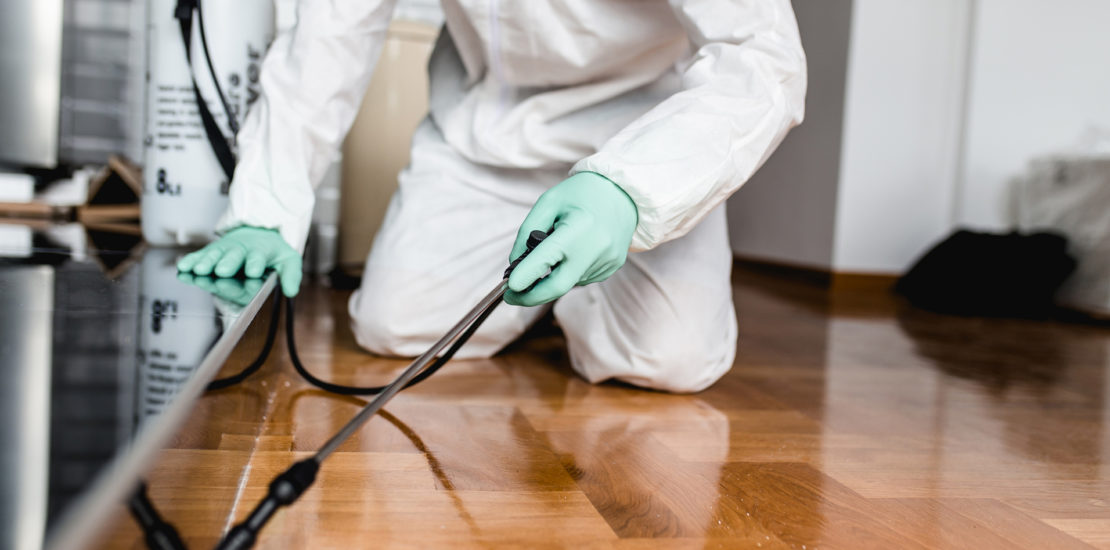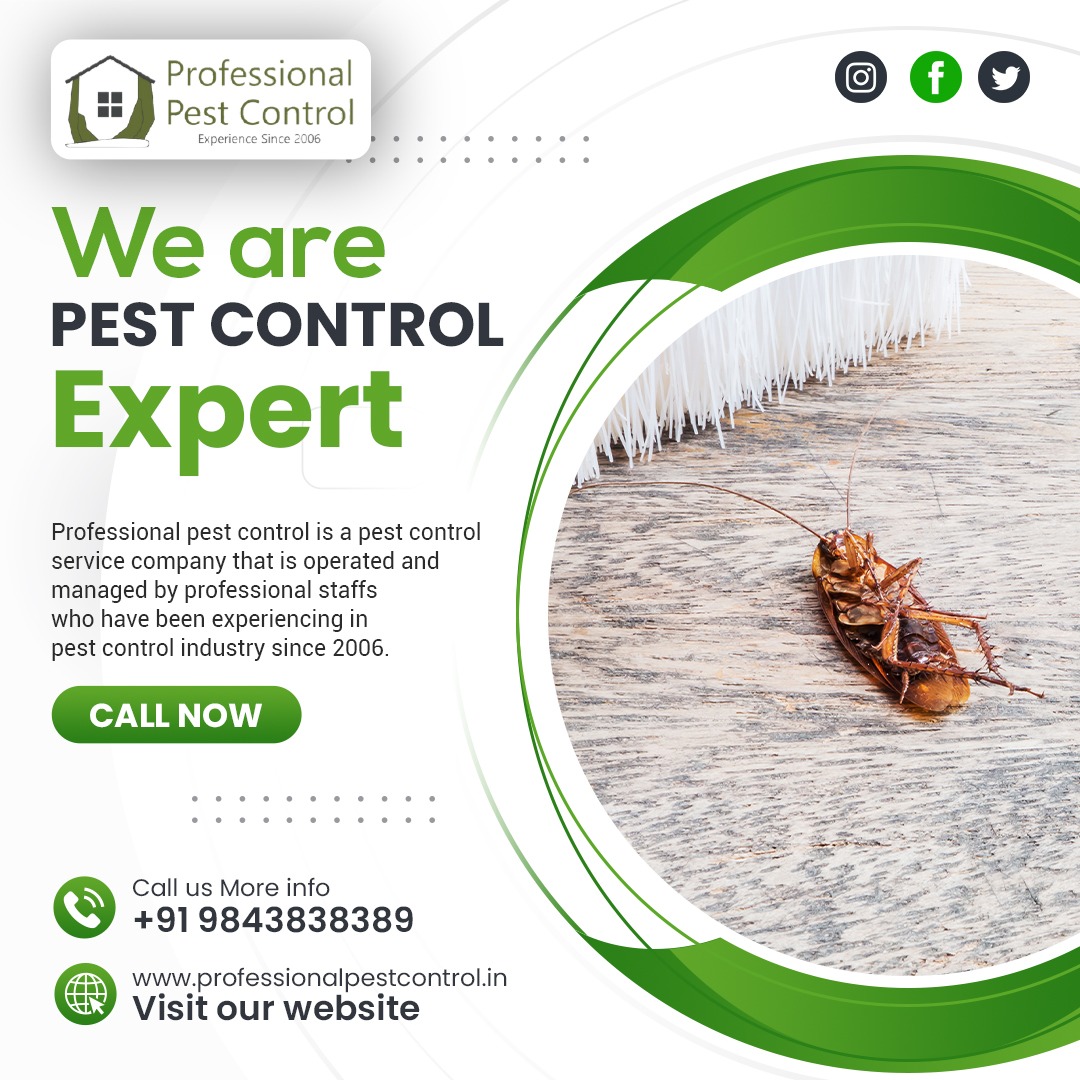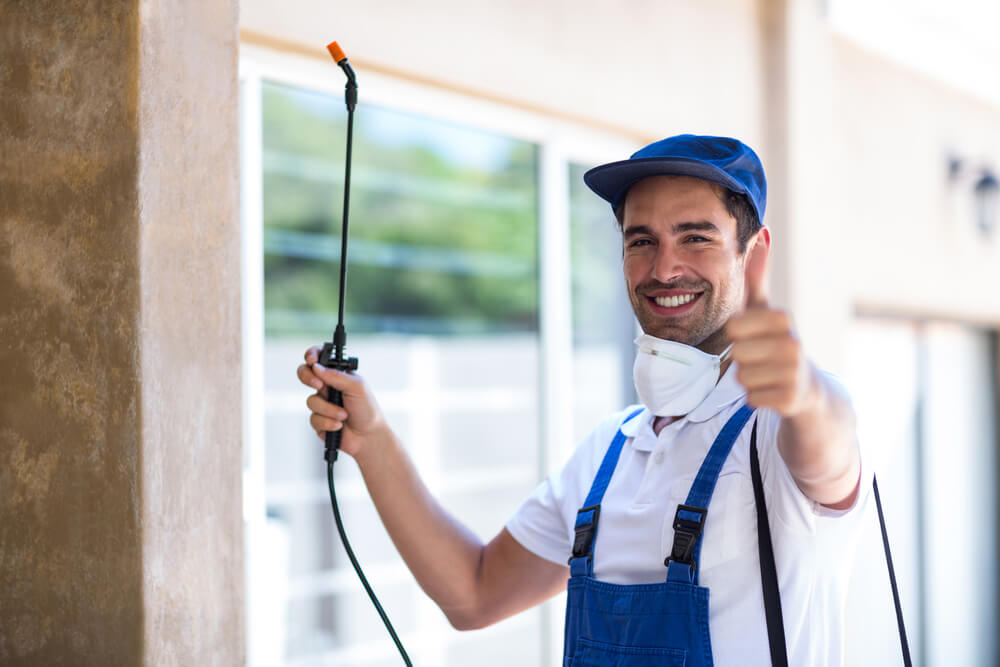Recognizing the Different Approaches to Parasite Control: A Comprehensive Guide

Natural Insect Control Techniques
Utilizing green strategies such as friend planting and biological parasite control is important for efficiently handling bugs in agricultural setups. Friend growing entails expanding various plants in distance to hinder pests, improve nutrient uptake, and enhance overall crop health and wellness.
Biological parasite control includes introducing all-natural killers or virus to manage pest populaces. Ladybugs, as an example, eat aphids, regulating their numbers without the demand for chemical pesticides. An additional example is the usage of Bacillus thuringiensis (Bt), a bacterium that targets particular insect pests while being harmless to people, animals, and valuable bugs.
These green methods not only lower the reliance on synthetic pesticides however likewise aid preserve biodiversity and soil health. By integrating natural pest control strategies right into farming methods, farmers can accomplish sustainable pest management while reducing negative effect on the setting.

Chemical Bug Control Solutions
Along with natural pest control techniques, the application of chemical pest control services plays a substantial role in efficiently handling pest populaces in farming settings. Chemical parasite control solutions are formulated to target certain bugs that might create substantial damages to plants. These remedies often include synthetic pesticides that are developed to remove bugs swiftly and successfully.
Among the vital benefits of chemical parasite control solutions is their effectiveness in controlling pest infestations widespread. Farmers can apply these services utilizing various methods such as spraying, airing out, or seed therapy to shield their plants from harmful insects, weeds, and diseases. Furthermore, chemical bug control remedies are reasonably very easy to use and can offer rapid results, aiding farmers safeguard their yields and decrease financial losses.
However, it is essential to use chemical parasite control solutions deliberately to minimize potential negative influences on the atmosphere, non-target organisms, and human health. Proper application techniques, adherence to safety and security standards, and normal monitoring are important to make sure the liable usage of chemical parasite control remedies in agricultural practices.
Organic Pest Control Approaches
Organic parasite control comes close to take advantage of natural killers or microorganisms to handle parasite populations in agricultural setups effectively. One common biological control method is the introduction of natural enemies, such as ladybugs or parasitic wasps, to target particular insects.
One more biological control technique includes utilizing microorganisms like germs, viruses, or fungi to contaminate and eliminate parasites. These microbial representatives can be splashed on crops or presented right into the dirt to battle numerous pests without damaging beneficial insects or other wildlife. Furthermore, the usage of scents to interfere with the breeding patterns of bugs is an additional reliable organic control approach. By conflicting with their reproduction, this technique aids to reduce insect populaces without the requirement for chemical intervention. Generally, organic insect control techniques supply a lasting and targeted option to pest monitoring in farming.
Integrated Parasite Administration (IPM)
Integrated Pest Monitoring (IPM) is a comprehensive method that integrates different pest control approaches to effectively take care of and reduce pest populations in agricultural systems. IPM concentrates on long-lasting prevention of pests through Bonuses a mix of organic, cultural, physical, and chemical control approaches. By incorporating these different techniques, IPM intends to decrease dependence on chemical pesticides, minimize ecological influence, and promote lasting pest administration practices.
One secret facet of IPM is making use of organic controls such as all-natural predators, parasites, and microorganisms to regulate bug populaces. This method takes advantage of the power of nature to maintain a balance in between pests and their all-natural adversaries without causing injury to the environment.
In addition, IPM includes cultural practices like crop cleanliness, habitat, and rotation manipulation to create unfavorable conditions for insects and disrupt their life cycles. Physical controls such as composts, obstacles, and catches are likewise used to avoid parasite invasions.
Physical and mechanical Bug Control Strategies
Using non-chemical techniques, such as mechanical and physical pest control strategies, is a vital facet of thorough bug monitoring methods, developing upon the foundation of Integrated Pest Management's holistic method. Mechanical parasite control entails making use of physical obstacles or catches to avoid insects from accessing and damaging plants or frameworks. This approach can consist of methods like setting up displays on windows, using row covers in agriculture, or using sticky catches to capture insects.
Physical insect control methods, on the other hand, emphasis on directly eliminating insects through physical means. Using warmth therapies to remove bed bugs or vacuuming up parasites like crawlers or ants can be reliable methods to take care of problems without the usage of chemicals. By integrating these mechanical and physical pest control methods into an Integrated Bug Monitoring strategy, experts and people can minimize dependence on pesticides while still effectively taking care of pest populations and minimizing damage.
Conclusion

In addition to all-natural insect control methods, the application of chemical insect control services plays a significant function in efficiently taking care of pest populations in farming atmospheres.One of the key benefits of chemical pest control remedies is their efficiency in controlling bug infestations on a huge scale.Integrated Parasite Administration (IPM) is a comprehensive technique that combines different pest control strategies to properly manage and decrease pest populaces in agricultural systems.Using non-chemical methods, such as physical and mechanical insect control techniques, Find Out More is a critical element of Find Out More thorough insect monitoring techniques, constructing upon the foundation of Integrated Bug Monitoring's alternative strategy. By incorporating these physical and mechanical pest control methods right into an Integrated Pest Monitoring plan, professionals and people can decrease dependence on chemicals while still successfully reducing and taking care of pest populations damages.
Comments on “Pest Control Clovis Solutions: Expert Provider at Your Doorstep”